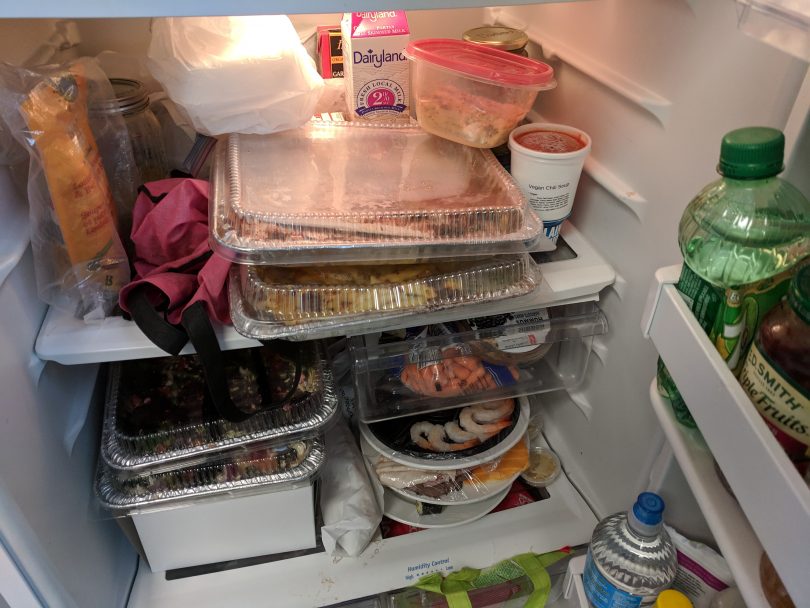Every year, Canadians waste $31 billion on food that they don’t eat. This amount of money could feed roughly 2.7 million households (family of four people) for a whole year! Almost half of this reported food waste occurs at the household level, which means if we bring two bags of groceries home, we just throw one bag in the garbage.

A lot of waste happens in the production level where foods that do not look aesthetically pleasing are discarded (for example, a bell pepper that is not symmetrical) before they even reach grocery stores. Given the majority of food waste happens in the household, as consumers, we have the power to change this statistic, by decreasing our own household food waste.
Why should you cut down on food waste?
- You could potentially save 50% on your grocery bill by buying just what you need instead of throwing almost half of it into the garbage bin.
- You could decrease food that ends up in landfills. Food waste in landfills cause greenhouse gas emissions which is harmful for our environment.
- You could prevent waste of all the resources, water and energy used to produce, package and transport the food in the first place.
How do we compare with other countries?
Canada is one of the worst food wasters in the world. We could look to other countries that are making an impact with food waste. France passed a law in 2015 where supermarkets are not allowed to throw out food, and must sign an agreement with charities who will take their food; this will in turn improve the quality of the food served at food banks.

What can you do in the household to cut food waste?
- Be mindful when grocery shopping. Writing down a grocery list is always helpful to keep shopping on track. Check what items are in the fridge that need to be used up and plan meals around those ingredients. Going grocery shopping after eating is also a great way to ensure impulse buys are kept to a minimum.
- Use the freezer! If you use only two tortillas out of the package, put the rest in the freezer to save for another meal. Or with cream that is about to expire, portion them into ice cube trays and freeze them.
- Compost! One of the great ways to decrease food waste is by composting. Did you know that every home in Vancouver has recycling services provided by the city? Once you get your green bin, collect all your compost and leave it out near your garbage bin. If you live in a condo or apartment building, check to see if there is a recycling service already set up, if not, you can call this number 604-282-7961 (Waste Management Canada) to request recycling pick-up from your building.
- Don’t throw out bruised produce! Instead of throwing them out, try to incorporate them into cooked foods where you won’t be able to notice the bruises or damage like smoothies, soups, stews and curries. There are organizations in Vancouver that make “ugly produce” or produce that has an unusual shape or is slightly bruised but is still perfectly good to eat, into meals for people in need! A simple thing you can do when going to the grocery store is “saving” bananas that are alone. These bananas often don’t get purchased and are thrown out.
A dietitian would be a great resource to help you plan meals and to incorporate leftovers into something new!
— Written by Tanya Choy, Registered Dietitian at St. Paul’s Hospital





